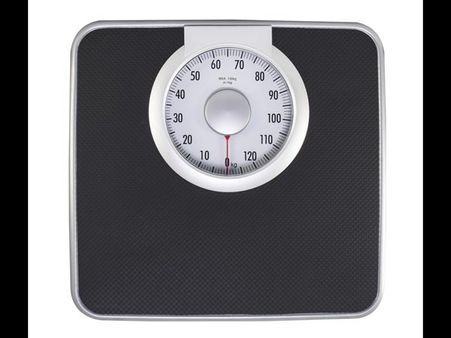Just In
- 1 hr ago

- 4 hrs ago

- 5 hrs ago

- 10 hrs ago

Don't Miss
- Finance
 1:3 Bonus Share, Rs 13.25/Share Dividend: Buy Maharatna PSU, TP Rs 355, Fundraise Approved
1:3 Bonus Share, Rs 13.25/Share Dividend: Buy Maharatna PSU, TP Rs 355, Fundraise Approved - Sports
 Who Won Yesterday's IPL Match 33? PBKS vs MI, IPL 2024 on April 17: Mumbai Indians Escape Last-Ditched Fight by Punjab Kings To Win
Who Won Yesterday's IPL Match 33? PBKS vs MI, IPL 2024 on April 17: Mumbai Indians Escape Last-Ditched Fight by Punjab Kings To Win - Movies
 Do Aur Do Pyaar OTT Release Date & Platform: When & Where To Watch Vidya Balan’s Film After Theatrical Run?
Do Aur Do Pyaar OTT Release Date & Platform: When & Where To Watch Vidya Balan’s Film After Theatrical Run? - News
 BRS Chief K Chandrasekhar Rao Slams BJP, Says K Kavitha's Arrest Is Vendetta Politics
BRS Chief K Chandrasekhar Rao Slams BJP, Says K Kavitha's Arrest Is Vendetta Politics - Automobiles
 Aprilia RS 457 Accessories: A Detailed Look At The Prices
Aprilia RS 457 Accessories: A Detailed Look At The Prices - Education
 Karnataka SSLC Result 2024 Soon, Know How to Check Through Website, SMS and Digilocker
Karnataka SSLC Result 2024 Soon, Know How to Check Through Website, SMS and Digilocker - Technology
 Nothing Ear, Ear a With ANC, Up to 42.5 Hours of Battery Launched; Check Price and Availability
Nothing Ear, Ear a With ANC, Up to 42.5 Hours of Battery Launched; Check Price and Availability - Travel
Telangana's Waterfall: A Serene Escape Into Nature's Marvels
10 Factors That Affect Your Menstrual Cycle
It has been observed that women generally experience 11 to 13 menstrual cycles per year. According to Veronica Lerner, MD, assistant professor of Obstetrics and Gynaecology at NYU Langone Medical Center, "The average cycle is 28 days and anywhere in between 24 and 31 days can be considered as normal." Paying attention to irregularities in your cycle provides a clue to your overall health. An abnormal period is not always a cause for alarm.
One should not jump to conclusions if you've missed a period or you've found that it's shorter or longer than normal. An irregular period can sometimes signify pregnancy, menopause, or polycystic ovarian syndrome. Well, these aren't always the case, as there are many less scary explanations for your abnormal period.

Listed down are 10 culprits that could be messing with your menstrual cycle:
-
Diet
-
Travel
-
Weather
-
Sleep
-
Stress
-
Smoking
-
Alcohol
-
Exercise
-
Age
-
Weight

Diet
Research says that diet can affect hormones, and subsequently, your menstrual cycle. A study in 2009 revealed that high-fibre diets were linked to decreased concentrations of the oestrogen hormone, one of the key players in the menstrual cycle, and a 10-times higher risk of less frequent ovulation. Fibre diets apparently cause a decrease of "beta-glucuronidase activity in faeces that leads to decreased reabsorption of oestrogen in the colon." However, having too high oestrogen levels can also result in irregular or otherwise abnormal menstrual periods. A diet too low in fat can also throw your menstrual cycle off track. Eating an appropriate amount of fats is also essential in balancing hormones.

Travel
If you are travelling and you find that your period is off track then chances are they might be connected. Any kind of travel can affect the two primary hormones melatonin and cortisol which controls your cycle. All the stress involved with travelling, from handling delayed flights to adjusting to a new place, can take a toll on your cortisol levels. When the levels of these two hormones in your body change, your ovulation schedule also shifts, making your period come later or earlier than expected.

Weather
Weather does affect your period though not in the way that you might think. Some factors like changing seasons do determine when you start your period. It was noted in a study published in the journal Gynecological Endocrinology that sunshine, or lack thereof, can even change the length of your periods. Climate changes have effects on woman's menstrual cycles by varying the body's metabolic rate which clues into hormone inequity. Any seasonal activity can influence your overall vaginal health. Dr John Fejes, an obstetrician-gynaecologist in Monterey, California adds that, "Weather changes can lead to frequent yeast vaginitis and bacterial infections."

Sleep
Women who have problems sleeping are more likely to have hormonal imbalances. Hormonal imbalance, low basal body temperature and suppressed ovulation could be the result of disrupted sleep patterns. The quality and quantity of sleep you get each night may affect your fertility hormones including oestrogen, progesterone, luteinizing hormone (LH) and follicle stimulating hormone (FSH). An average of 8-10 hours of sleep a night helps to maintain hormonal balance. Leptin is one specific hormone that is a vital link between fertility and sleep which affects ovulation. Regular sleep is required to produce proper amounts of Leptin and disrupted the release of leptin may cause irregular menstrual cycles.

Stress
Stress plays an important role in suppressing the functioning of the hypothalamus, which controls the master gland of the body - pituitary gland. This gland controls the thyroid, adrenal glands and the ovaries which all work together to manage hormones. Ovarian dysfunction may lead to problems with oestrogen production. One important hormone that helps build the uterine lining and prepares the body for pregnancy is oestrogen. If the ovaries aren't working properly, side effects may involve the menstrual cycle, including missed periods or irregular periods.

Smoking
It has been observed that a woman who smokes generally gets shorter and more irregular menstrual cycles as compared to non-smokers. A research done at the University of Massachusetts in Amherst reveals that the risk of developing PMS climbs as you smoke more and depends on how young you were when you first started smoking. Smoking does decreases the amount of oxygen available to the uterus and constricts the blood vessels, which could make period pain worse.

Alcohol
Yes, you have heard it right, an alcoholic beverage can significantly disrupt the menstrual cycle. Alcohol consumption causes permanent damage to the tissues and can disrupt the delicate balance critical to maintaining human female reproductive hormonal cycles that result in infertility. Alcohol temporarily increases the level of oestrogen and testosterone, which may interfere with the healthy functioning of a woman's cycle.

Exercise
Exercise can also have a negative effect on your period, unfortunately. Working out takes away a lot of your energy. When you exercise your body tends to lose calories which puts a considerable amount of stress on your body. This can, in turn, affect your menstrual cycle as the body presumes it to be a negative condition for reproduction.

Age
Age has a major impact on your cycle. Periods tend to be more irregular during puberty and generally around the mid-40s when a woman approaches perimenopause the hormones are usually more erratic. According to Samantha Butts, MD, associate professor of Obstetrics and Gynaecology at Penn Medicine, "At a certain point, the number of eggs in your ovaries declines such that your periods are infrequent."

Weight
Your menstrual cycle maintains a delicate balance. You should be aware that gaining excess weight or losing some pounds can impact production of hormones, specifically oestrogen, and hypothalamic functioning. Thus the regularity and length of your menstrual periods get changed.
It's actually a big deal if you miss a period one time just consider some of your recent life events to see if diet, stress, sleep, or any of the above factors might have played a role. You can keep a track of your health by keeping track of your periods. It will surely help you, but be sure to consult with your doctor if by any chance you happen to see any major changes.
-
 healthDiscover the Beginner's Guide to Tracking Your Menstrual Cycle
healthDiscover the Beginner's Guide to Tracking Your Menstrual Cycle -
 healthMenstrual Disorder: Symptoms, Causes, Diagnosis, and Treatment
healthMenstrual Disorder: Symptoms, Causes, Diagnosis, and Treatment -
 healthMyths vs Facts: Does The Moon Affect Women's Health And Menstrual Cycles?
healthMyths vs Facts: Does The Moon Affect Women's Health And Menstrual Cycles? -
 wellnessWhat Is Follicle-Stimulating Hormone (FSH)? Does It Indicate Fertility?
wellnessWhat Is Follicle-Stimulating Hormone (FSH)? Does It Indicate Fertility? -
 disorders cureWhat Is Dysfunctional Uterine Bleeding? Causes, Symptoms, Risk Factors And Treatments
disorders cureWhat Is Dysfunctional Uterine Bleeding? Causes, Symptoms, Risk Factors And Treatments -
 wellnessDirty Public Toilets, Cramps Among Major Hygiene Concerns For Women During Menstruation: Survey
wellnessDirty Public Toilets, Cramps Among Major Hygiene Concerns For Women During Menstruation: Survey -
 disorders cureWorld Menstrual Hygiene Day 2022: What Is Oligomenorrhoea? Causes, Symptoms & Treatments Of Irregular Periods
disorders cureWorld Menstrual Hygiene Day 2022: What Is Oligomenorrhoea? Causes, Symptoms & Treatments Of Irregular Periods -
 diet fitnessInternational Women's Day: 7 Yoga Poses To Induce Periods Naturally
diet fitnessInternational Women's Day: 7 Yoga Poses To Induce Periods Naturally -
 wellnessMenstrual Hygiene Day 2020: How To Chart Your Menstrual Cycle
wellnessMenstrual Hygiene Day 2020: How To Chart Your Menstrual Cycle -
 womenMenstruation Hygiene Day 2020: Ways In Which You Can Talk About Menstruation
womenMenstruation Hygiene Day 2020: Ways In Which You Can Talk About Menstruation -
 disorders cureDysmenorrhea (Menstrual Cramps): Causes, Symptoms, Risk Factors, Treatment And Prevention
disorders cureDysmenorrhea (Menstrual Cramps): Causes, Symptoms, Risk Factors, Treatment And Prevention -
 wellnessCommon Symptoms Of Menopause In Women That You Must Know
wellnessCommon Symptoms Of Menopause In Women That You Must Know


 Click it and Unblock the Notifications
Click it and Unblock the Notifications



